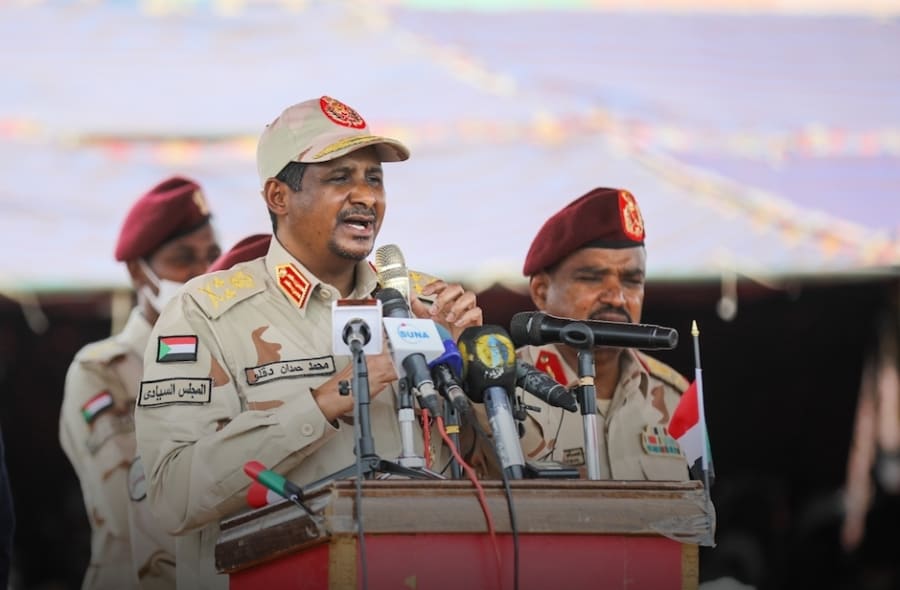Israeli delegation, including Mossad, reportedly visited coup leaders in Sudan
Israeli government officials, though, have so far remained silent on the coup

A delegation from Israel, likely consisting of Mossad officials, recently visited the military Sudanese leaders responsible for the coup in Khartoum in late October, the Israeli news site Walla reported on Monday.
The purpose of the visit was reportedly to find out whether the coup would affect the normalization agreement between Sudan and Israel that was brokered by the former Trump administration in 2020.
The representatives of the Jewish state met with Abdel Rahim Hamdan Dagalo, a Sudanese general in charge of the Rapid Support Forces paramilitary that played an instrumental role in last month’s coup. The political turmoil in Sudan has so far claimed the lives of at least 20 civilians and left more than 140 people wounded.
This was not the first time that general Dagalo met with senior Israeli officials. In early October, Dagalo was part of a Sudanese delegation that secretly visited the Jewish state where they reportedly discussed security issues with Israeli officials from the Prime Minister’s Office in Jerusalem and representatives of the National Security Council. Israeli officials deny that they were informed in advance of any coup plans in Sudan.
The United States and several European countries have condemned the coup in Sudan and demanded that the military leaders return the power to the civilian Sudanese administration. Washington also decided to freeze $700 million in financial assistance to the impoverished African state.
By contrast, the Jewish state’s leadership has so far remained silent on the coup in Sudan. According to the Walla report, Sudan’s military leadership is interpreting Israel’s silence as a tacit approval of the coup leaders. However, Jerusalem’s silence is most likely connected to a pragmatic unwillingness to jeopardize Israel’s fragile and fresh diplomatic relations with Sudan. In addition, it was the military and not civilian leadership that played an instrumental role behind the historic normalization agreement between Sudan and Israel.
From Jerusalem’s perspective, a military regime in Sudan likely means more stability and a higher likelihood that the bilateral relations between Sudan and Israel survive the turmoil. While Western nations promote democracy in the Middle East, Israeli leaders tend to focus on pragmatic stability provided by military leaders, especially after the failed Arab Spring that paved the path toward a resurgent Islamism throughout the region.
While much of the West has criticized Egypt for its human rights abuses, Jerusalem has for the abovementioned reasons focused on establishing close security ties with the current Egyptian government led by the retired general Abdel Fatah el-Sisi. Israel has assisted Cairo in the battle against Islamists in the Sinai Peninsula. In return, Egypt has played an important role as a broker between Hamas and Israel.
Unlike most Western democracies, Israeli leaders cannot normally afford making official statements on controversial foreign policy issues that could potentially undermine the Jewish state’s security. For instance, much of the West condemned Russia for annexing parts of Ukraine.
By contrast, Israeli officials remained quiet and focused instead on maintaining its complex but stable ties with the Russian military in next-door Syria. Consequently, Moscow’s appreciation of Jerusalem’s neutral position on Ukraine greatly facilitated the establishment of a security-coordination mechanism between Russian and Israeli military forces in Syria that is still in place today.
In sum, Israel appreciates genuine democracy no less than other Western nations but needs to focus on the harsh realities of the complex and turbulent Middle East.

The All Israel News Staff is a team of journalists in Israel.













